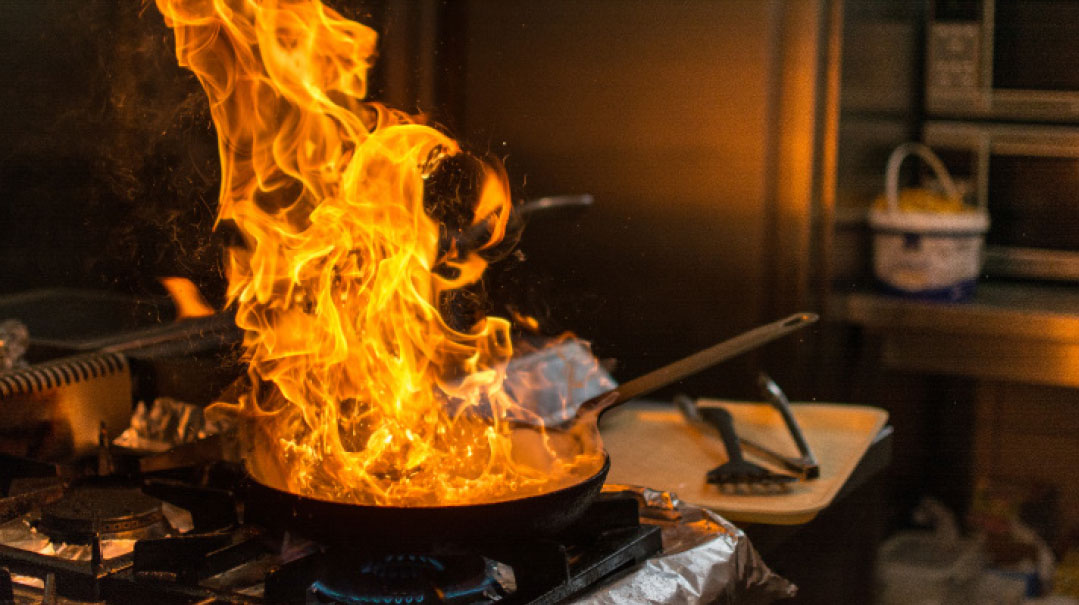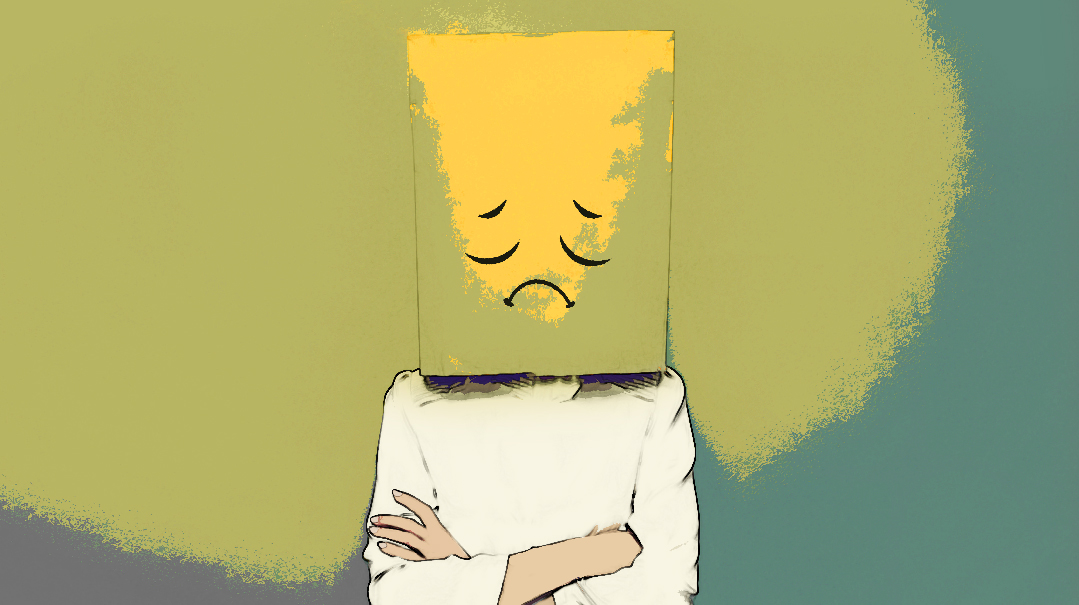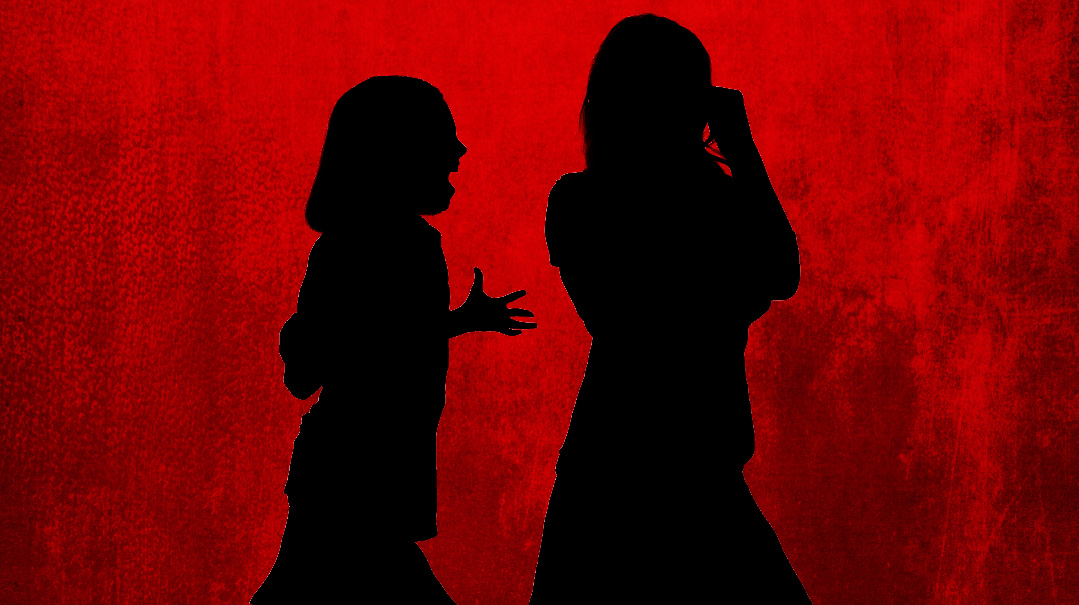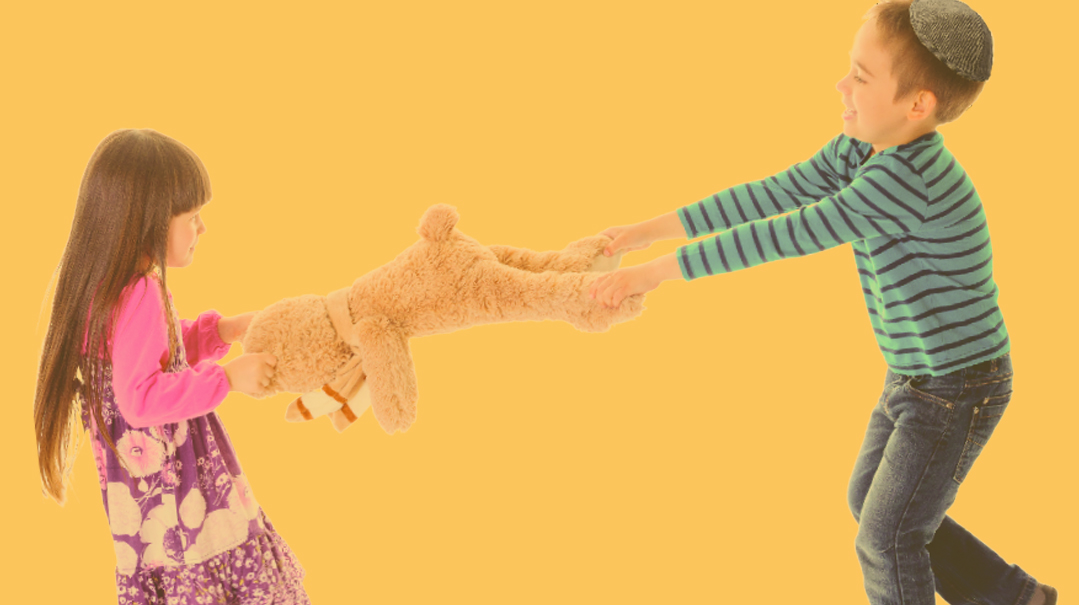Fear Ignited, Part III
| November 4, 2020Her memories had chained her. EMDR gave her the key to freedom

The Problem: Trauma causing anxiety and panic
Tool Used: EMDR
Previously in Therapy Toolbox: Rikki came for treatment for a single-incident trauma. She’d had a kitchen fire and became crippled by panic and anxiety since. In the first installment (issue 696), Rikki learned about trauma and the brain, developed mindfulness practice, and learned panic-reducing strategies such as developing an imaginary safe space and other resourcing techniques. In the second installment (issue 713), Rikki learned about memory making, the basis of EMDR therapy, and practiced visualization and the EMDR eye movements.
The next week, Rikki came in determined.
“Abby, I’m ready. I practiced mindfulness, safe space, and deep breathing. I spoke to my husband about what I’ll need after this session for space and time to process if necessary, and I practiced my visualization. Let’s do this!”
I laughed. “You got it, Rikki. We can start today for sure. It’s great you’ve been so diligent in practicing all those strategies. First, though, how was your week in terms of your fire anxiety?”
“It was okay. When I cooked, I tried to visualize a successful outcome beforehand. And I think it helped. But I still have a knot in my stomach when I get near the stove. I just want to get back to normal.”
“Got it. It’s wonderful you’re back to cooking on the stove, even if it feels uncomfortable. Okay, let’s start the EMDR. Just remember: With EMDR, it’s the same rules as always. If there’s something you don’t want to talk about, or if you just want to take a break, it’s up to you.
“I’m going to move my hand back and forth, and I want you to stop me when you want. You can do it like this.” I put my hand out like a traffic cop to show her how to signal to me to stop. Rikki and I practiced EMDR on a smaller, less intense memory. For the first EMDR practice, it’s important to try something with a low level of distress. That way, you can get used to the EMDR process without becoming too flooded. Typically, I go chronologically with my clients, starting at their earliest memories and building up to the ones that cause the most distress.
Because Rikki came for a single incident, and she wanted the focus to only be healing this one, it was important that we at least try one “test run.” After we processed a low level, almost neutral memory (when she was cut off on line in the grocery store the other day), Rikki felt ready to go ahead with her target memory.
“Okay, Rikki, you want to target the memory of your kitchen fire. I’m going to ask you to do something a little different now. Just for a minute, imagine this whole event was a dream. If you had to go back into this dream, what would you need to feel safe?”
“A fire extinguisher… and my husband. My husband holding a fire extinguisher. Why are we doing this?”
“This is another resource, one we can use in the middle of the EMDR session, in case you get flooded and need something concrete to ground you. Your focus shouldn’t be on the memory now, but on the resource. I’m going to ask you to concentrate on that image while you watch my fingers move back and forth.”
I did a set of eye movements — moving my fingers back and forth across her visual field at a pace of about two seconds per round trip. “How did that go?”
“Fine,” Rikki replied.
“Okay, great. Let’s focus on that safety device one more time.” I did another set of eye movements. “Good. Now I’m going to bring you back to the fire. What picture represents the worst part of the incident?”
“I heard my daughter scream, and I ran to the kitchen to find the pot had just burst into flames. I ran over to try to extinguish it, but didn’t know how. So the moment of the actual fire.”
“What does this make you believe about yourself?” I handed Rikki a list of negative cognitions.
“Um.” She read through the list. “That I cannot protect myself and my kids… and I’m powerless and helpless.”
“What would you prefer to believe about yourself?” I handed Rikki a list of positive cognitions.
“I can take care of myself and my family.”
“When you think about the incident, and ‘I can take care of myself,’ how true does that feel, on a scale of one, completely false, to seven, completely true?”
“I think a… two,” Rikki answered.
“When you concentrate on the fire and the words ‘I cannot protect myself and my family,’ what emotion comes up?”
“Um… fear… shame. Maybe some sadness.” Rikki spoke quietly.
“On a scale of zero to ten, with zero bringing no bad feeling, to ten being the worst possible feeling, how bad is the feeling right now?”
“It’s an eight.”
“Where do you feel it in your body?”
“In my chest. A bit in my throat.” Rikki’s eyes were misty with unshed tears.
“I’ll ask you to concentrate on the memory and to follow my fingers with your eyes. After a little while, we’ll stop and talk about it. Sometimes things will change and sometimes they won’t. There are no ‘supposed tos.’ Just let whatever happens, happen, and we’ll talk at the end of the set of eye movements. Tell me what comes up, even if it doesn’t seem important. You remember how to stop me if it’s feeling like too much, right?”
“Yup.” She held up her hand.
“Okay, now we’re going to do the eye movements. Focus on, ‘I can’t protect myself and my family,’ and where you feel it… Ready?” I did a set of eye movements. “Deep breath.” I waited for Rikki to breathe. “What came up?”
“The flames, my daughter screaming. Me running around in a panic looking for something to smother the flames.”
“Go with that.” I repeated the set of eye movements. “Deep breath. What came up?”
“More running around. Upset that my daughter was watching me, and I didn’t know what to do.” Rikki was breathing deeply, and her cheeks were flushed.
“Go with that.” I repeated the set of eye movements. “Deep breath. What came up?”
“I was going to go for a bucket of water but remembered that it’s bad for oil. I found the cover to the pot.”
“Go with that.” I repeated the set of eye movements. Rikki followed closely. “Deep breath. What came up?”
“The relief that it was extinguished. Me hugging my daughter after. Making a joke about extra crispy fries.”
“Go with that.” I repeated the set of eye movements. “Deep breath. What came up?”
“That even though I was trying to comfort my daughter, I was so scared inside.”
“Go with that.” I repeated the set of eye movements. Rikki followed closely. “Deep breath. What came up?”
“My husband there, he cleaned the oil and grease on the stove. We ordered takeout that night. It was fine afterward.”
“Go with that.” I repeated the set of eye movements. “Deep breath. What came up?”
“It was fine after. It seems kind of silly that I was so scared when something didn’t happen.”
“Go with that.” I repeated the set of eye movements. “Let it go. Deep breath. What came up?”
“Nothing much.”
“Where are you now from zero to ten?”
“I think a four. Is that possible?”
I smiled. “What keeps it from being zero?”
“I’m upset that I got so distracted that I forgot about the pot.”
“Go with that.” I repeated the set of eye movements. “Deep breath. What came up?”
“I’m allowed to be distracted. I have a bunch of kids home at once.”
“Go with that.” I repeated the set of eye movements. “Deep breath. What came up?”
“It happened quickly, and most of the kids didn’t realize.”
“Go with that.” I repeated the set of eye movements. “Deep breath. What came up?”
“Nothing much. That they were excited about the takeout.”
“Go with that.” I repeated the set of eye movements. “Deep breath. What came up?”
“Nothing new,” Rikki replied calmly.
“Where are you now, from zero to ten?” I asked.
“A two,” she answered with a slight smile.
“What keeps it from being zero?”
“I’m not sure. But I feel it in my chest.”
“Go with that.” I repeated the set of eye movements. “Deep breath. What came up?”
“I can’t believe it. I completely forgot…” Rikki looked panicked, took a water bottle off my desk and took a long sip.
“What came up?” I asked softly.
“There was a fire on my block when I was really little. I remember the lights.”
“Go with that.” I repeated the set of eye movements. “Deep breath. What came up?”
“I felt like I couldn’t move. And my mom went outside to bring the neighbors jackets and I was so scared.”
“Go with that.” I repeated the set of eye movements. “Deep breath. What came up?”
“I was terrified my mother wouldn’t come back or that the fire was going to reach our house.”
“Go with that.” I repeated the set of eye movements. “Deep breath. What came up?”
“I tried to scream but I couldn’t.” The tears that had been threatening all session spilled over onto Rikki’s cheeks.
“Go with that.” I repeated the set of eye movements. “Deep breath. What came up?” Rikki got choked up again. I’d never seen her display such strong emotion in our sessions, and I gave her some time. After a minute, I gently asked, “What came up?”
“The lights and the fear and me just being frozen.”
“Go with that.” I repeated the set of eye movements. “Deep breath. What came up?”
“My mom came back. She gave me a hug. I don’t remember anything else really.”
“Go with that.” I repeated the set of eye movements. “Deep breath. What came up?”
“I think I was three because I had that teddy bear. I think my mom stayed with me in my bed.”
“Go with that.” I repeated the set of eye movements. “Deep breath. What came up?”
“Same.” Rikki’s voice was quiet and calm.
“Get back to the incident you started with. What do you get now? Where are you from zero to ten?”
Rikki paused. “A zero.” She scrunched her face. “How?”
“What are you feeling?”
“I literally don’t feel anything. Like I’m remembering, but I don’t have a feeling in my body.”
“Okay.” I did a set of eye movements. “What came up?”
“That it’s crazy that I don’t feel anything.”
“Go with that.” I did a set of eye movements. “What came up?”
“Same.”
“Does it feel a little better than the time before, a little worse, or about the same?”
“The memory? Me? I guess a little better.”
“Again.” I did a set of eye movements. “Does it feel a little better than the time before, a little worse, or about the same?”
“Same.”
“Now it’s time for the next phase — installation. How does ‘I can take care of myself and my family’ sound? Is that still the right thing to say, or is something else better?”
“I’m not sure anymore.”
I handed Rikki the page with the list of positive cognitions on it.
“I think ‘I can handle it’ feels better.”
“Okay, now get the initial incident back in your mind and say that out loud.”
“I can handle it.”
“How true does that feel now, with one being all the way false to seven being all the way true? Say the words again…”
“I can handle it… It’s a five.”
I did a set of eye movements. “What came up?”
“That it’s easy to say now, because it’s over. But what happens if it happens again?”
“Go with that.” I did a set of eye movements. “What came up?”
“Well, I’ll do that same thing as I did. I actually handled it. It was fine.”
“Go with that.” I did a set of eye movements. “What came up?”
“That same thing.”
“How true are the words ‘I can handle it’ between one to seven?”
“A seven.” Rikki beamed.
“Okay. Concentrate on the incident again and what you’re saying to yourself.” I did a set of eye movements.
“Does it seem more true than the time before, less true, or about the same?”
“The same.”
“Again.” I did a set of eye movements. “Does it seem more true than the time before, less true, or about the same?”
“The same.”
“Concentrate on the original memory and ‘I can handle it.’ Now check all through your body for any discomfort or tension…. What do you notice?”
Rikki spent several moments with her eyes closed, just breathing slowly. Her eyes fluttered open and she smiled. “Nothing. No distress.”
“Awesome. Great job, Rikki! What do you need now that we finished?”
“Um. A drink. And I need to walk around.” Rikki took a water bottle from my desk, made a slow brachah, and took a drink.
“That’s good. Why don’t you get up for a little stretch?”
Rikki nodded and walked around my office, checked her phone, and sat back down.
“Wow. That was a trip. So weird how I ended up back in kindergarten! And we’re at the end of session.” Rikki breathed deeply. “So that’s it? I’m cured?”
I laughed. “Well, let’s see how you are next week. There may be other stuff that comes up. Or strong feelings. It’s a good idea to keep a journal just to jot down any thoughts or feelings that come up in between sessions.”
“Okay. This was strange.” Rikki smiled her lopsided grin. “But I feel good. I’ll try to keep a journal even though you know I’m terrible at homework.”
“Not homework, just literally some notes to keep track of how you’re feeling. That was really great work, Rikki. Remember, if at any point this week you’re feeling flooded, you can utilize your safe space, mindfulness, and visualizations. Good job.”
When Rikki arrived the following week, I was curious to see how she was faring.
“Well, hello there,” I said with a smile as Rikki settled into her spot on the couch.
“Abby. I can’t believe it. It’s the weirdest magical thing ever. I’m cooking on the stove and it’s okay!”
I laughed. “That’s so good, Rikki. But you know it’s not magical.”
“Right, I know. We just processed the stuck memory. And I worked really hard to get to that place!”
“You sure did. So, can you tell me a little but about how the last week was?”
“Hectic. I was really good at keeping my journal the first week, but you know how things are… here I brought it to you.” Rikki handed me a notebook.
“Great. Why don’t you just share what you want me know?”
“Okay, well after the session I was a bit dizzy, and I can’t explain it…Weak? Tired? I made sure to eat and drink and had a short rest. And then I was fine physically. But I felt… vulnerable?”
“That’s not uncommon. Can you guess why?”
“Because it was intense?”
I smiled. “Yes, intense. And maybe because we were accessing some older stuff? That can sometimes take us by surprise if we didn’t know there were difficult memories that were stuck.”
“So I was thinking about that.” Rikki furrowed her brow in consternation. “It’s pretty scary to think that I can do an EMDR session and anything might come up and like I could be on this emotional roller-coaster of forgotten trauma! No thanks, I’ll pass on that one and take the comforting, predictable merry-go-round.”
“Right. I understand why it’s surprising and unpredictable when old memories resurface. However, EMDR isn’t supposed to be an emotional free-for-all journey into the unknown of the subconscious. That’s why it’s really important to do EMDR only with a trained professional.
“I’m doing more than just waving my hand back and forth. I’m controlling the speed and duration, all which have an impact on how you reprocess. As you’re reprocessing, I’m working as your guide to ensure that the memories that are coming up are related to the target memory.”
“What do you mean?”
“Well, imagine your brain is a house with several rooms. Each room represents a traumatic memory. You might walk past a new room, stick your head in, but I’ll help you steer clear of entering that new room. I’ll guide you back, and we take one ‘room’ at a time. If that room becomes too uncomfortable or flooding for you, then there’s a process to deescalate the emotional flooding.”
“So people don’t like, emotionally combust in session?”
“No, Rikki, I’m happy to say, there have been no emotional combustions in my office to date. Although I’m not exactly sure what an emotional combustion is, but I think I get what you mean.” I smiled at Rikki.
“You see, the memory from kindergarten was directly related to your current fire trauma. The in-the-moment of the fire currently was scary, but you were able to process it and clear it pretty quickly. You couldn’t logically understand why it was causing you so much distress. It was the older memory as a child that was causing you the most distress. You know the saying: “If it’s hysterical, it’s likely historical.”
“Yeah, it was so weird how I felt like that little girl! I don’t think I’ve thought about that day in 25 years!”
“Our brains are incredible. What else did you experience after our session?”
“So, honestly, I was too nervous or tired or whatever to try cooking that night, so we just made pizza in the pizza maker. But the next night, I was determined, and even though I was apprehensive intellectually, I didn’t feel the fear like I normally do.”
“That’s wonderful!”
“Yes! I couldn’t believe it! And I’ve cooked on the stove every night since!”
“That’s great, Rikki.”
“I can’t say I wasn’t nervous at all, but super low level, and I can’t tell if it was just in my head. You know?”
“Do you mean like your habits? Or intellectually you were used to being scared?”
“Yes. I kept trying to tell if I was really scared or not. But I will tell you when I was actually scared…”
“Sure.”
“There was this massive house fire on some house on my route to school. All of a sudden, a few days after our session, I turned the corner and staring back at me is a massive, blackened skeleton of a house.”
“Wow!”
“It looked so scary. My heart started racing, and I thought, ‘You see?! This is what fire can do!’”
“So what happened?” I asked. “How did you manage that fear?”
“Well, honestly I did recognize that it was better than it would’ve have been. Like if I would’ve seen that last month, I probably would’ve had a panic attack. Still, my heart started racing and my palms got sweaty. I pulled over onto another street, and I drank some water and did my visualization of my beach.”
“That’s fantastic, Rikki! Great application of using your tools in a new unpredictable situation!”
“Yeah.” Rikki blushed. “My kids asked me what I was doing because I had them in the back seat, and I told them I’m thinking of a calm and happy space. They already think I’m a little nuts, so this was total par for the course on a normal 8 a.m. school run.”
I laughed. “Calming yourself down is not nuts, Rikki.”
“I know. I actually taught it to my kids for when they can’t sleep or are anxious about something. One of them uses it as a sleep aid.”
“That’s so cool. So after you did that, you felt okay about the seeing the house?”
“Yes, I was fine. For a couple days I avoided that street, but slowly I went back, just driving past and making sure not to look directly at it. But I wanted to go my same route because didn’t want the fear to overtake me again.”
“Rikki! Fabulous! You did ‘exposure.’ That would be exactly what I would’ve told you to do. See, you don’t even need me!”
Rikki smiled. “About that… what do you think? Think I’m cured?”
“What do you think?” I asked back.
“I think I’m good. I think I’m better than before and definitely managing. And happier.”
“Great. So, would you like to wrap up treatment?”
“Until the next crisis…” Rikki said with a laugh.
Three weeks later, I received a text from Rikki. Abby! I just made the most delicious sweet potato fries! On the stove!
I laughed. And with a craving for sweet potato fries, I reflected on how this isn’t the first time, and won’t be the last that I’m inspired by my clients.
Types of Trauma
Trauma is a broad term and covers many events. Perhaps the biggest division in types of trauma is between single incident vs complex.
Single incident trauma occurs with “one-off” events and is commonly associated with post-traumatic stress disorder. It can occur from natural disasters, fighting in a war, or a one-time frightening event like a robbery or physical assault.
Complex trauma usually occurs as a result of interpersonal interactions (interactions between people), and the events causing it are often planned, extreme, or repetitive/chronic. It can involve challenges with shame, trust, self-esteem, identity, and regulating emotions. Complex trauma can have a more severe and persistent impact on an individual as it can affect one’s emotional and physical health, well-being, relationships, and daily functioning.
It may seem unbelievable that Rikki saw such dramatic change with just a single session of EMDR, but this is consistent with extensive published research. It’s common to feel significant relief from difficult feelings in one or two sessions of EMDR. Of course, single-incident trauma like Rikki’s is much quicker to treat, compared to complex trauma, which could require many months of EMDR work.
Authors Note: Some material in this article is taken from EMDR: Within a Phase Model of Trauma-Informed Treatment (Greenwald 2007), written by my EMDR trainer, Dr. Ricky Greenwald. Many thanks to Dr. Greenwald for allowing the use of his materials and for reviewing this piece.
Abby Delouya is trained in EMDR and maintains a private therapy practice for individuals and couples in Montreal, Canada.
(Originally featured in Family First, Issue 716)
Oops! We could not locate your form.











